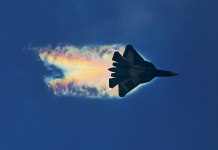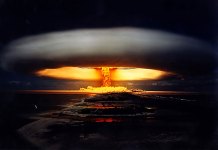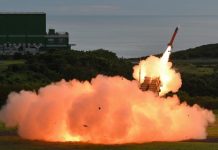Iran is conducting a research on tsunami off the southern Makran coast in association with, India, Pakistan and Oman, attempting to identify high-risk areas, according to a report in Tehran Times.
India-Oman Maritime Security and Duqm Port Key Agenda of Oman Military Delegation
Makran is a semi-desert coastal strip in Baluchistan, Pakistan and Iran, along the coast of the Gulf of Oman. The narrow coastal plain rises rapidly into several mountain ranges. Of the 1,000 kilometers coastline, around 750 kilometers is in Pakistan.
Makran is thinly inhabited, with much of the population concentrated in a string of small ports including Chabahar, Gwadar, Jiwani, Jask, Sirik, Gwadar, Pasni, Ormara and many smaller fishing villages.
Acknowledging the significance of the Makran coast development issue, a project on the tsunami in the region has been defined by the UNESCO, which has been launched for about a year in collaboration with four countries, including India and Pakistan, Mahmoud Reza Akbarpour said.
Previous studies have shown that the region is prone to tsunami, so UNESCO took the lead and provided funding for the project, he stated, adding, Iran has cooperated in several UNESCO tsunami studies that examined the Makran fault and its effect on the Iranian coast of Makran.
“We have started research on the tsunami since past 4 years, but given the importance of the subject, we are also implementing this joint project to map the area in terms of earthquakes and tsunamis.”
Of course, each country has already done this separately, but now they are going to work together, he added. Since the earthquake magnitude for the region is not clear, it is very essential to be ready if it is to occur and that the project will help to take effective action in this regard, he stated.
“We predict an earthquake ranging from 8 to 9 on the Richter scale and what impacts each of these Richter earthquakes will have.”
Referring to two parts to the project, he noted that a rapid alert system aimed at identifying high-risk areas and which system should be used if such an earthquake happens and how the institutions would work together to give the first warning and evacuate the area; the send part is related to how to deal with a tsunami.
“We have so far performed several manoeuvres, and the organizations’ tasks have also been specified,” he said.
He went on to highlight that as the first wave of tsunami reaches land after 15 minutes, training on how to evacuate the area at this time is crucial. “Moreover, we have held 7 to 8 workshops in India and Oman, and some workshops will be held in Oman in March, and in June we will have two workshops in Iran.
Via: Tehran Times




